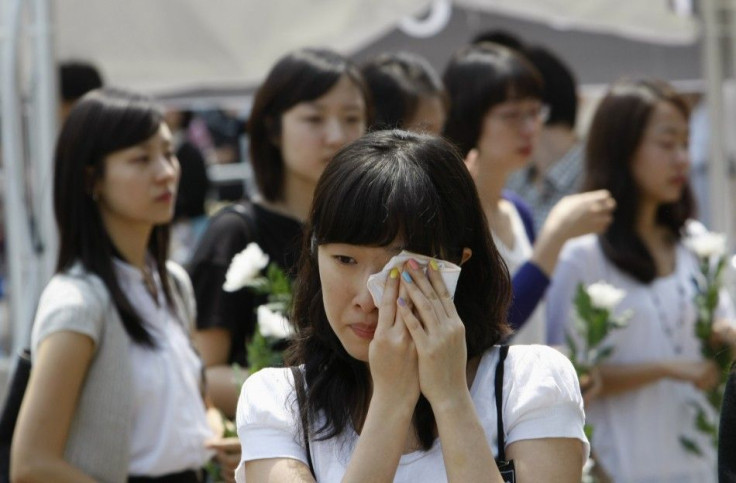South Korea Battles Plague Of Suicides By Monitoring Websites Encouraging Such Killings

South Korea, which has one of the world’s highest rates of suicide, is seeking to monitor so-called ”suicide websites,” which encourage people to kill themselves, in order to prevent such tragedies.
The watchdog will comprise 100 people, including mental health workers and ordinary citizens, who will monitor blogs, portals and social media networks in order to uncover sites that incite people to commit suicide. Upon identification, the government of Seoul will launch an investigation and take unspecified action against the owners of the offending websites.
[The municipal government of Seoul] decided to create a watchdog group, as suicide is no longer an individual problem but rather a social issue that we must all take part in to resolve, a city official told the Yonhap news agency of South Korea.
Despite its prosperity and high standards of living, South Korea is burdened with the highest suicide rate among the Organization for Economic Cooperation and Development. In 2010, about 31.2 of every 100,000 inhabitants in the country killed themselves (up from 26.1 in 2005 and 11.8 in 1995).
About 40 South Koreans commit suicide every day, double the rate from just 10 years ago. Men account for the bulk of suicides in the country; the rate for males is 41.4 per 100,000 -- almost double the figure for women.
The South Korean government has said that the rate of suicide has quintupled over the past generation. Moreover, there are untold numbers of other people in the country who try to kill themselves but fail.
Indeed, South Korea’s suicide rate now surpasses Japan’s and is more than double or triple the rates found in most advanced western nations.
The easy access to social media websites that encourage suicides has likely exacerbated the problem, the Seoul government believes.
BBC reported that some factors behind the extraordinary number of suicides include the pressures brought on students by the education system, as well as the long hours demanded of workers in a bustling economy.
Indeed, the young in South Korea are particularly afflicted -- suicide is now the leading cause of death for people in their 20s and 30s, according to Statistics Korea.
Kang-ee Hong, a child psychologist, told BBC that part of the problem may be the erosion of traditional values and the extreme pressures parents place on children to succeed.
From the beginning of childhood, the importance of money and achievement are emphasized by their parents, so they feel that unless you are successful in school grades and a good job, good prestigious college, you're not successful, and the parents behave as if 'you're not my child,' he said.
In recent years, a number of high-profile South Koreans, including actor and singer Park Yong-ha, Chung Ku-haeng, former President Roh Moo-hyun, Samsung heiress Lee Yoon-hyung and supermodel Daul Kim, among many others, have committed suicide, giving the practice a dramatic public face and a kind of cache.
© Copyright IBTimes 2024. All rights reserved.











